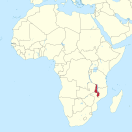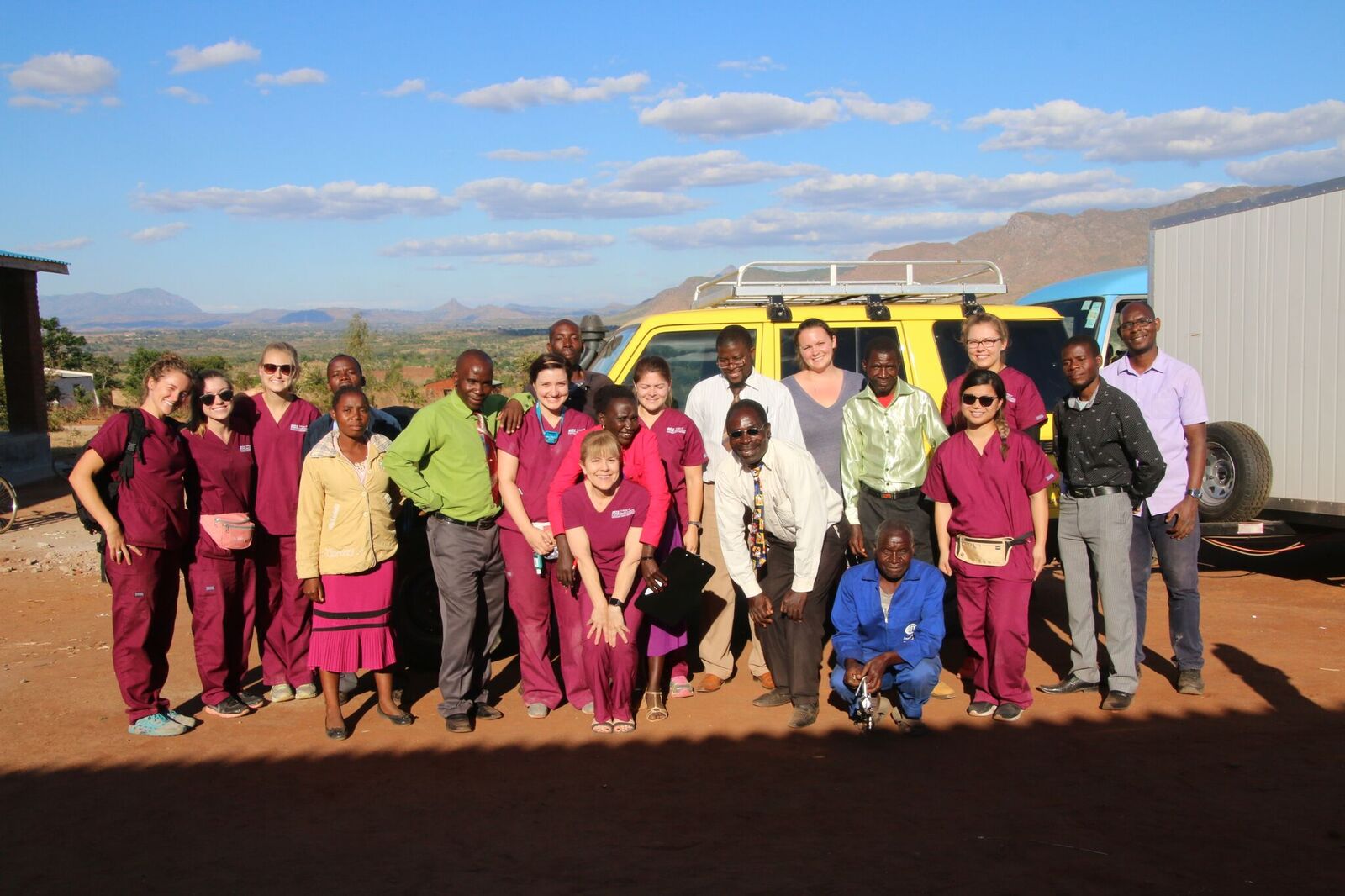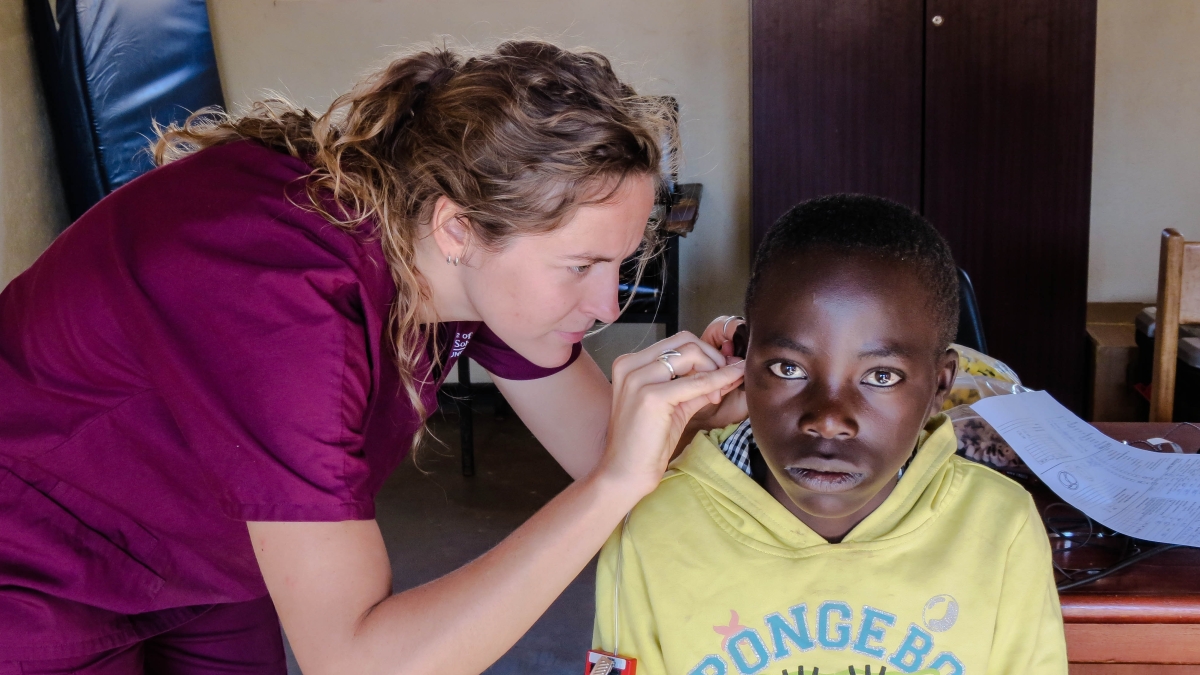Editor's note: This story is being highlighted in ASU Now's year in review. To read more top stories from 2016, click here.
Ingrid McBride has just returned from one of the world’s poorest countries, where she spends every summer working to make sure people can hear.
McBride, an Arizona State University audiology professor, has traveled to Malawi in southeast Africa for each of the last six years to address what she calls a “tremendous” need for medical professionals who can help people with hearing problems.
Audiologists provide a range of services, from fitting patients for hearing aids to diagnosing disorders, and there wasn’t a single one in the nation of 16 million people when McBride founded Hearing for Humanity in 2010. “There was just nothing happening as far as ear and hearing care at all,” said McBride, clinical professor and director of the Audiology Clinic at ASU.
Hearing for Humanity seeks to provide care and train local clinicians, implementing sustainable practices that can be put into use long after volunteers leave. McBride’s program also gives ASU students in the Department of Speech and Hearing Science an opportunity to study and work abroad for course credit.
The initiative is fueled by private charitable contributions from individuals and corporate partners. McBride and her team of students work to raise the funds needed to purchase supplies and hearing aids, which they bring with them to Malawi Malawi is nestled between Mozambique, Tanzania and Zambia. .
Malawi is nestled between Mozambique, Tanzania and Zambia. .
Each year, McBride and a team of students — there were 15 in the latest group — spend a month in Malawi, helping curb hearing loss for children and adults at hospitals and clinics across the country.
Since that first year, the level of care in Malawi has improved, though the need is still great. Today, there are still only three audiologists in the nation. But scores of clinic workers have learned from the Hearing for Humanity volunteers, making sure patients have access to care year round.
“Already what’s happened since we’ve been gone is just amazing,” McBride said, adding that people fit with hearing aids have been able to receive follow-up care, “so that makes it sustainable.”
Hearing for Humanity also has helped train four Malawian audiology students selected to attend the University of Manchester tuition-free to obtain master’s degrees. “When they come back, they will be Malawi’s first home-grown audiologists,” McBride said.

At the end of a long clinic day, the Hearing for Humanity team, along with local interpreters and clinical officers, pose for a group photo in Malawi. Photo courtesy Ingrid McBride
Among the small number of audiologists in Malawi is ASU alum Courtney Caron, who participated in McBride’s program for two years as a student and one year as a professional before setting up her own clinic.
“When I first began graduate school at ASU in 2009,” Caron said, “I had a plan set in my mind: I would graduate with my AuD then pursue an MBA and work my way toward opening my own private practice.”
Instead, she said, she “ended up skipping the MBA” and opening a clinic in a nation where the United Nations reports that 74 percent of the population lives on less than $1.25 a day.
She said she got her own practice in the end, “but I think I was lucky enough to get an opportunity to do it in a much more rewarding way.”
Others involved also say the program has benefits that stretch both ways.
ASU clinical assistant professor Kate Helms-Tillery was a part of McBride’s team this year and said “it’s an important experience for our students” to provide service to others as often as possible. Also, the program gives “students the opportunity to work with people from a different culture,” which she said is “critical because students will also encounter people of different cultures once they begin practicing.”
Audiology graduate student Jessica Wenger (pictured at top) recognized the benefit even before going, saying the program was what "sold" her on attending ASU. “There just aren’t any other universities offering something like it,” she said, calling the opportunity a “huge advantage over the experience you’d get anywhere else.”
For Caron, there is tangible benefit to helping others improve their lives.
“You don’t need to speak the language to understand how much of a difference has been made,” Caron said. “Every task big or small takes so much more effort” in Malawi, “so every progress is a celebration.”
“The effect of any disability on a person’s life here is so much more so than in the U.S.,” she said. “So giving them even the smallest assistance can make a world of difference.”
Top photo courtesy Jessica Wenger.
More Health and medicine

Reducing waste in medical settings
Health care saves lives, but at what cost? Current health care practices might be creating a large carbon footprint, according to ASU Online student Dr. Michele Domico, who says a healthier…

ASU offers bilingual counseling to Spanish speakers
Arizona is one of the five states in the nation with the highest percentage of Hispanic residents, according to the U.S. Department of Health and Human Services Office of Minority Health, and …

College of Health Solutions launches first-of-its-kind diagnostics industry partnership to train the workforce of tomorrow
From 2007 to 2022, cytotechnology certification examinees diminished from 246 to 109 per year. With only 19 programs in the United States, the cytology workforce that stands at the front line of…


